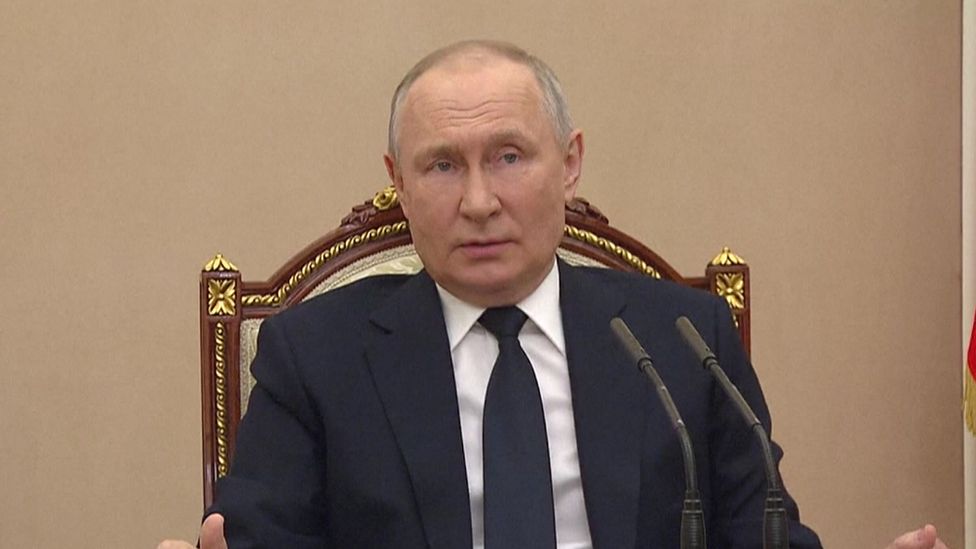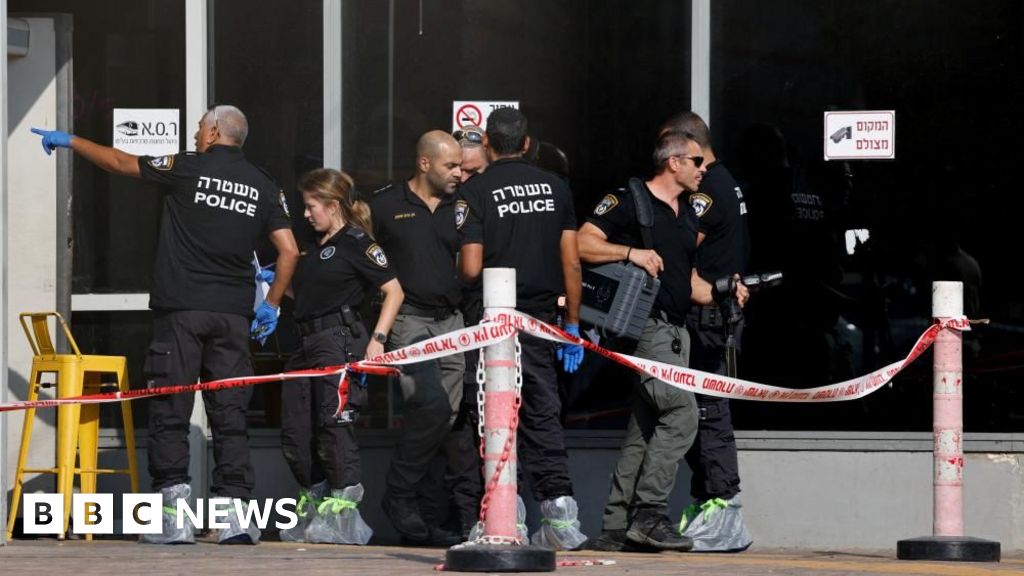ARTICLE AD BOX
 Image source, AFP
Image source, AFP
President Putin announced he would station nuclear weapons in neighbouring Belarus on Saturday
Nato has condemned Russia's "dangerous" and "irresponsible" rhetoric after Vladimir Putin's decision to station tactical nuclear weapons in Belarus.
The organisation is "closely monitoring" the situation and said the move would not lead it to change its own nuclear strategy.
The US said it did not believe Russia was preparing to use nuclear weapons.
Belarus shares a long border with Ukraine, as well as with Nato members Poland, Lithuania and Latvia.
Ukraine has called for an emergency meeting of the UN Security Council to address the potential threat of President Putin's announcement on Saturday.
President Putin said Moscow would not be transferring control of its arms to Minsk and that Belarusian leader Alexander Lukashenko - a firm ally of the Kremlin and supporter of its invasion of Ukraine - had long raised the issue with him.
Ukraine says the move violates nuclear non-proliferation agreements - an accusation President Putin has denied, instead comparing it to the US stationing its weapons in Europe.
But Nato on Sunday described Russia's reference to nuclear sharing as "misleading".
"Nato allies act with full respect of their international commitments," a spokesperson said.
The military alliance also accused Russia of consistently breaking its own arms control commitments, including the country's decision to suspend the new START treaty - a deal signed in 2010 which limits the number of US and Russian nuclear warheads and gives each the power to inspect the other's weapons.
On Sunday, a top security adviser to Ukrainian President Volodymyr Zelensky accused Russia of making Belarus a "nuclear hostage".
Oleksiy Danilov wrote on Twitter that Russia's plans were a "step towards internal destabilisation" in Belarus and predicted anti-Russian sentiment in the country would grow.
Exiled Belarusian opposition leader Sviatlana Tsikhanouskaya said Russia's deployment of nuclear weapons in her country "grossly contradicts the will of the Belarusian people" and would make it a potential target for retaliatory strikes.
But Yuriy Sak, an adviser to Ukraine's ministry of defence, told the BBC that Ukraine was used to nuclear threats from Russia, adding that the deployment in Belarus would not change the outcome of the war.
"They cannot win this war because it is for them unsustainable, it is unwinnable, [and] they cannot defeat Ukraine because we have been living with the hypothetical threat of a possible nuclear strike from day one of the large-scale invasion," he said.
Mr Sak said there was nothing new in Russia's behaviour, as it had been stationing military equipment in Belarus since the start of the war in 2022.
Mykhailo Podolyak, another senior adviser to President Zelensky, characterised the move as "scare tactics" and said the Russian leader was "too predictable".
Analysts at the US think tank Institute for War said the risk of escalation to nuclear war following the announcement remained "extremely low".
A small number of Iskander tactical missile systems, which can be used to launch nuclear weapons, have already been transferred to Belarus, President Putin said in his address on Saturday.
This will be the first time since the mid-1990s that Moscow will have based nuclear arms outside the country.
The Soviet Union's collapse in 1991 meant weapons became based in four newly-independent states - Russia, Ukraine, Belarus and Kazakhstan - with the transfer of all warheads to Russia completed in 1996.
Russia will start training crews to operate the weapons from next week. The construction of a storage facility for tactical nuclear weapons in Belarus will be completed by 1 July, President Putin said.
The announcement comes only days after Chinese President Xi Jinping's visit to Moscow, during which Russia and China issued a joint statement saying "all nuclear powers must not deploy their nuclear weapons beyond their national territories, and they must withdraw all nuclear weapons deployed abroad".

 1 year ago
11
1 year ago
11








 English (US)
English (US)